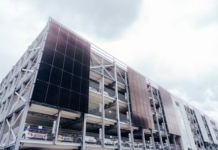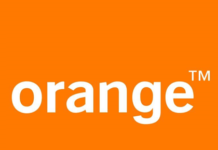
In Australia, power stored from rooftop solar can now be directed to meet demand when the electrical grid maxes out.
When temperatures surged well over 100 degrees in Australia during a heat wave in February, the electric grid couldn’t handle the demand from air conditioners, and 90,000 people lost power. Normally, the government would fire up a backup gas power plant to meet surges in demand. But instead, new software could let rooftop solar power do the same thing.
The Decentralized Energy Exchange, or deX, is a new digital marketplace that links homeowners or businesses with solar panels and batteries to the grid, letting them trade power with neighbors or with utilities. At times of peak demand, someone with stored solar power can make extra money.
 “Australia has the highest penetration of rooftop solar in the world—around 15% of Australian households have solar panels,” says Phil Blythe, CEO and founder of GreenSync, an energy tech startup that was one of several partners to create the new marketplace. “But we’re not harnessing the full power of such renewable sources, as the grid starts encountering a raft of technical challenges when renewables penetration goes beyond about 25%. And so, a lot of the solar energy available in Australia at any given time is underutilized,” Blythe tells Co.Exist.
“Australia has the highest penetration of rooftop solar in the world—around 15% of Australian households have solar panels,” says Phil Blythe, CEO and founder of GreenSync, an energy tech startup that was one of several partners to create the new marketplace. “But we’re not harnessing the full power of such renewable sources, as the grid starts encountering a raft of technical challenges when renewables penetration goes beyond about 25%. And so, a lot of the solar energy available in Australia at any given time is underutilized,” Blythe tells Co.Exist.
Cheaper batteries to store solar power are making it possible to make better use of that power, and software can help direct the power where it’s needed.
“The role of software in coordinating and controlling decentralized energy resources is paramount, but not well understood,” Blythe says. “Without software to direct energy ‘traffic,’ you just have a bunch of expensive hardware. Software makes the building of ‘virtual power plants,’ a collection of locally based energy generators, a reality.”
 The new marketplace is similar to a Brooklyn project that uses blockchain technology to enable neighbors to trade solar power in a micro-grid. But it also enables trading at a larger scale: A utility can advertise potential load problems that it anticipates will happen, and connected rooftop solar systems can respond.
The new marketplace is similar to a Brooklyn project that uses blockchain technology to enable neighbors to trade solar power in a micro-grid. But it also enables trading at a larger scale: A utility can advertise potential load problems that it anticipates will happen, and connected rooftop solar systems can respond.
By turning thousands of decentralized rooftop solar systems into a connected virtual power plant, the system can also avoid the need to build new traditional power plants, ultimately saving people money on their electricity bills.
“Rather than build more traditional power plants, which cost millions or billions in infrastructure spending, we can harness energy that’s being generated locally,” Blythe says. “Energy that’s not only local, but clean and renewable. With surplus power being generated by solar panels, and stored in battery packs, local renewables lessen the demand on the grid, and ultimately help consumers decrease the cost of their energy consumption.”
The digital marketplace is being launched in two pilot projects in Australia, each with around 5,000 households.
Source: https://www.fastcoexist.com


















